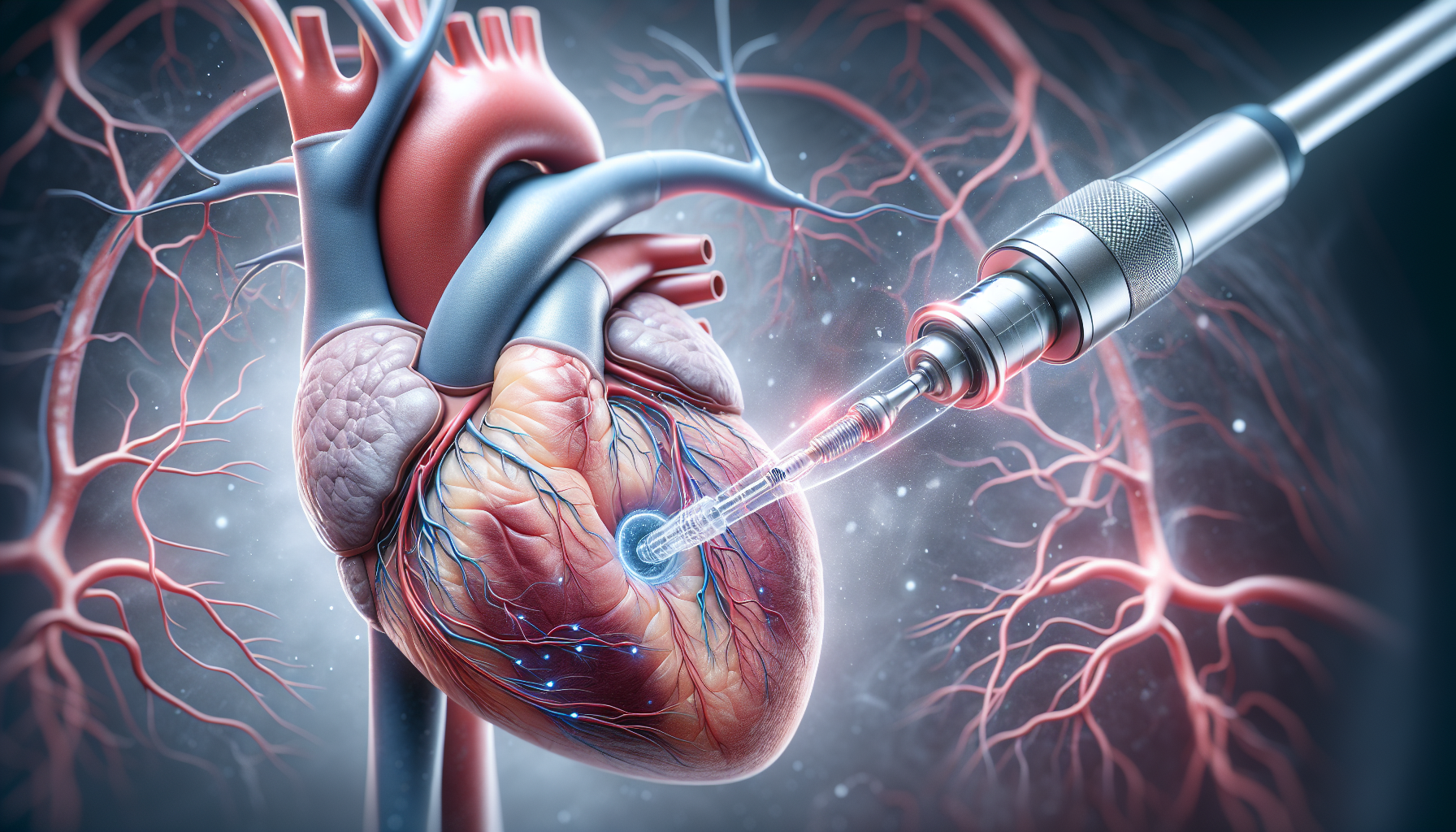Breakthrough in Heart Valve Replacement: First Trans-Septal Implantation of Saturn Valve
Key Takeaways
- First trans-septal implantation of the Saturn valve completed successfully.
- The Saturn valve offers a unique modular design for better heart adaptation.
- Trans-septal approach provides a less invasive alternative to traditional methods.
Did You Know?
Introduction to the Saturn Mitral Valve Replacement
In an exciting development for cardiology, InnovHeart has announced the successful first-in-human trans-septal implantation of its Saturn Transcatheter Mitral Valve. This pioneering procedure represents a significant advancement in the treatment of mitral regurgitation (MR), a condition where the heart's mitral valve doesn't close tightly, causing blood to flow backward in the heart.
Details of the Clinical Trial
The groundbreaking procedure took place on May 8th, 2024, at Santaros Klinikos University Hospital in Vilnius, Lithuania. The European clinical trial, CASSINI-EU, includes patients with moderate to severe MR. The patient treated was a 79-year-old female with severe mixed mitral regurgitation.
This trial is pivotal for validating that the Saturn valve can be implanted using a less invasive trans-septal approach. The Heart Team comprising Dr. Kęstutis Ručinskas, Dr. Giedrius Davidavičius, and others performed the procedure successfully. The results were promising, showing excellent hemodynamic outcomes.
Innovative Design of the Saturn Valve
What sets the Saturn valve apart is its unique modular design. The valve includes an annular ring and a low-profile valve that fits into the native annulus without causing obstructions. This design helps in reversing the remodel of the native annulus and eliminates MR effectively.
The valve's modularity means it can adapt well within the heart, avoiding Left Ventricular Outflow Tract (LVOT) obstruction, a common complication with other TMVR approaches.
Future Prospects and Expansion
With the successful trans-septal implantation, InnovHeart plans to expand the CASSINI-EU trial to multiple countries. The study aims to enroll up to 30 patients, providing vital data on the efficacy and safety of the Saturn valve system.
The company believes that this valve will simplify procedures and broaden the patient pool that can benefit from this innovative technology. Unlike other technologies that have many anatomical exclusions, the Saturn valve could become a more versatile option.
Significance of Trans-Septal Approach
Traditionally, many mitral valve replacements have been performed using the trans-apical approach, which involves accessing the heart through the chest. However, the trans-septal approach, accessing through the femoral vein, offers a less invasive alternative.
This new method can reduce recovery times and lower the risk inherent in open-heart surgeries. As the technology and techniques improve, more patients will be able to benefit from this minimally invasive procedure.
Statements from Key Figures
Dr. Giedrius Davidavičius expressed his pride in the team and the significant progress made from trans-apical to trans-septal delivery. Dr. Torsten Vahl highlighted the Saturn valve's flexibility in approach, and Dr. Paolo Denti emphasized the potential of the Saturn valve to expand treatment options for patients with fewer exclusions.
David Wilson, CEO of InnovHeart, expressed gratitude towards the skilled physicians and InnovHeart's founder, Giovanni Righini, for achieving this milestone.
Conclusion and Looking Forward
The first successful trans-septal implantation of the Saturn valve marks a significant milestone in cardiology. This development could lead to safer, less invasive, and more accessible treatment options for patients suffering from mitral regurgitation.
As the clinical trials continue and expand, the potential of the Saturn valve to improve patient outcomes becomes increasingly promising. This breakthrough could pave the way for more advancements in heart valve replacement technologies.
References
- InnovHearthttps://www.innovheart.com
- CASSINI-EU Studyhttps://clinicaltrials.gov/ct2/show/NCT04540480




